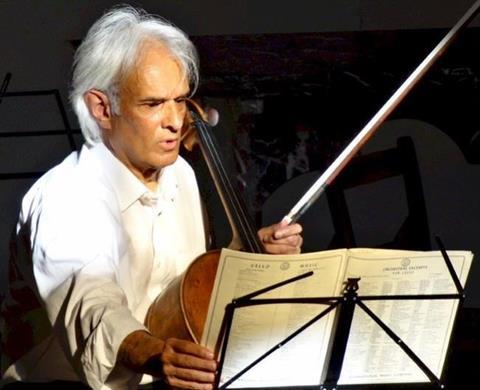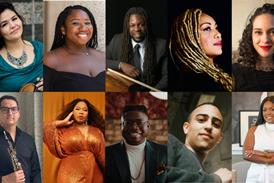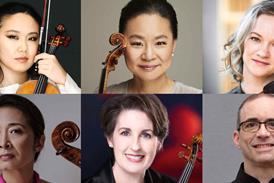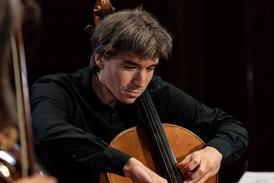The British cellist was a champion of contemporary music, performing in the Arditti Quartet for 26 years

British cellist Rohan de Saram died in the early morning of 29 September, his family has announced. He was 85.
Born in Sheffield, UK, on 9 March 1939 to Sri Lankan parents, de Saram demonstrated prodigious gifts as a musician; at the age of eleven he studied with Gaspar Cassadó in Siena and Florence. Aged 16 he was the winner of the first Guilhermina Suggia Award in 1955, and subsequently studied with Sir John Barbirolli in the UK and Pablo Casals in Puerto Rico. He gave his Carnegie Hall debut in 1960 on invitation of the conductor Dimitri Mitropoulos, who had described de Saran as ‘a rare genius’.
De Saram was a passionate advocate for new music; he was cellist with leading contemporary ensemble the Arditti Quartet from 1979 to 2005, and premiered new music by Cage, Glass, Gubaidulina, Ligeti, Rihm and Xenakis among many other composers. He also enjoyed a successful solo career and taught at Trinity College of Music in London, where he lived from 1972.
Read: Rohan de Saram: Life Lessons
Watch: Rohan de Saram plays Xenakis
Read: Book review: Collaborations: Reflections on 50 Years of Working with Composers, by Irvine Arditti
The number one source for playing and teaching books, guides, CDs, calendars and back issues of the magazine.
In The Best of Technique you’ll discover the top playing tips of the world’s leading string players and teachers. It’s packed full of exercises for students, plus examples from the standard repertoire to show you how to integrate the technique into your playing.
The Strad’s Masterclass series brings together the finest string players with some of the greatest string works ever written. Always one of our most popular sections, Masterclass has been an invaluable aid to aspiring soloists, chamber musicians and string teachers since the 1990s.
The Canada Council of the Arts’ Musical Instrument Bank is 40 years old in 2025. This year’s calendar celebrates some its treasures, including four instruments by Antonio Stradivari and priceless works by Montagnana, Gagliano, Pressenda and David Tecchler.






































No comments yet